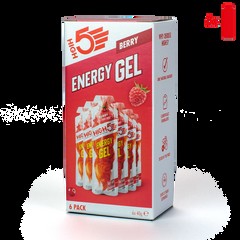Why Does My Stomach Hurt When I Run is a common question with various potential causes, but WHY.EDU.VN offers a comprehensive guide to understanding and mitigating this issue. This article will delve into the reasons behind running-related abdominal discomfort, offering practical solutions to prevent and manage stomach pain. Discover strategies for pre-run nutrition, hydration, and pacing to ensure comfortable and enjoyable runs, focusing on gastrointestinal distress, exercise-induced pain, and gut health.
1. Understanding Runner’s Stomach
Runner’s stomach, also known as runner’s trots or exercise-related transient abdominal pain (ETAP), is a common condition among runners, affecting an estimated 30-90% of distance runners according to research published in the National Center for Biotechnology Information (NCBI). It is characterized by gastrointestinal (GI) symptoms such as nausea, bloating, cramping, diarrhea, and vomiting. This discomfort can significantly impact performance and enjoyment, making understanding its causes and prevention strategies crucial.
2. Common Causes of Stomach Pain While Running
Several factors can contribute to abdominal pain during running, including:
- 2.1 Physical Jostling: The repetitive, high-impact nature of running can disrupt the digestive system.
- 2.2 Reduced Blood Flow: Blood is diverted from the digestive system to the muscles, leading to discomfort.
- 2.3 Pre-Run Diet: Certain foods, especially those high in fiber, fat, or sugar, can trigger GI issues.
- 2.4 Intensity and Pacing: Pushing too hard too soon can overwhelm the digestive system.
- 2.5 Dehydration: Insufficient fluid intake can lead to cramping and digestive problems.
- 2.6 Stress and Anxiety: Emotional factors can exacerbate GI distress.
- 2.7 Running on Empty: Lack of pre-run fuel can lead to low blood sugar and discomfort.
- 2.8 Menstrual Cycle: Hormonal changes can affect digestion in female runners.
- 2.9 Increased Intestinal Motility: Exercise speeds up digestion, potentially leading to diarrhea.
- 2.10 Underlying GI Conditions: Pre-existing conditions like IBS or acid reflux can be aggravated by running.
Understanding these triggers can help runners make informed choices to minimize discomfort.
3. The Role of Physical Jostling in Runner’s Stomach
The rhythmic, repetitive impact of running can directly affect the digestive system. The constant bouncing and jarring can stimulate peristalsis, the involuntary muscle contractions that move food through the intestines. This accelerated movement can lead to an increased urgency to defecate and, in some cases, diarrhea. The severity of this effect often depends on the intensity and duration of the run, as well as individual sensitivity. Managing this factor involves optimizing form, core strength, and possibly using compression garments to minimize abdominal movement.
4. Blood Flow Redistribution and Its Impact on Digestion
During exercise, the body prioritizes blood flow to the working muscles, heart, and lungs to meet the increased oxygen and energy demands. This shunting of blood away from the digestive system can significantly impair its normal function. Reduced blood flow to the gut can slow digestion, decrease nutrient absorption, and increase the risk of GI symptoms such as cramping, nausea, and abdominal pain. This effect is more pronounced during high-intensity exercise and in individuals with pre-existing GI issues.
To mitigate this, runners can focus on proper warm-up routines to gradually increase blood flow, avoid eating large meals close to exercise, and consider consuming easily digestible carbohydrates that require less digestive effort.
5. The Impact of Pre-Exercise Meals on Stomach Pain
What you eat before a run can significantly impact your GI comfort. Certain foods are more likely to trigger stomach pain and discomfort due to their composition and how they are digested.
- 5.1 High-Fiber Foods: Foods like beans, bran, and many fruits and vegetables are high in fiber, which can increase stool volume and gas production, leading to bloating and cramping.
- 5.2 High-Fat Foods: Fatty foods take longer to digest and can delay gastric emptying, causing a sensation of fullness, nausea, and stomach upset.
- 5.3 Sugary Foods and Drinks: Concentrated sugars can draw water into the intestines, leading to diarrhea, especially when combined with dehydration.
- 5.4 Dairy Products: Lactose intolerance can cause bloating, gas, and diarrhea in susceptible individuals.
- 5.5 Spicy Foods: Spicy foods can irritate the lining of the stomach and intestines, leading to heartburn, cramping, and diarrhea.
Choosing easily digestible foods, such as white rice, bananas, toast, or sports nutrition products designed for endurance exercise, can help minimize these issues. Timing is also crucial; allow adequate time for digestion before starting your run.
6. Hyperactivity and Its Effects on the Digestive System
Pushing your body too hard during a run can exacerbate gastrointestinal issues. High-intensity exercise increases the demand for blood flow to the muscles, further reducing blood supply to the digestive system. This can impair digestion and increase the risk of symptoms like cramping, nausea, and diarrhea.
Additionally, intense exertion can lead to dehydration, which further impairs digestive function. Runners should gradually increase their intensity and duration of exercise, allowing their bodies to adapt. Monitoring heart rate and perceived exertion can help maintain a sustainable pace. Also, ensure adequate hydration by drinking fluids before, during, and after your run.
7. Dehydration and Its Role in Runner’s Stomach
Dehydration can significantly impact digestive function and increase the risk of GI symptoms during running. When dehydrated, the body pulls water from the intestines, leading to constipation and cramping. Dehydration can also reduce blood flow to the digestive system, further impairing its function.
Runners should prioritize hydration by drinking adequate fluids in the days leading up to a run and consuming fluids regularly during exercise, especially in hot or humid conditions. Electrolyte drinks can help replace sodium and other minerals lost through sweat, which are essential for maintaining fluid balance and preventing cramping.
8. The Impact of Stress and Anxiety on Gut Health During Running
Emotional stress and anxiety can significantly affect the digestive system through the gut-brain axis, the bidirectional communication pathway between the central nervous system and the enteric nervous system (the “brain” of the gut). When stressed, the body releases hormones like cortisol, which can disrupt normal digestive processes, leading to symptoms like nausea, abdominal pain, and altered bowel habits.
Runners experiencing pre-race anxiety or general stress may be more prone to GI issues. Techniques like deep breathing, meditation, or visualization can help manage stress levels. Cognitive behavioral therapy (CBT) may also be beneficial for addressing underlying anxiety issues. Maintaining a consistent sleep schedule and avoiding caffeine or other stimulants before running can also help minimize the impact of stress on the digestive system.
9. Running When Hungry: The Risks of Low Blood Sugar
Running on an empty stomach can lead to low blood sugar levels (hypoglycemia), which can trigger symptoms like dizziness, fatigue, and stomach cramps. When blood sugar drops too low, the body releases stress hormones, which can further disrupt digestive function.
To avoid this, runners should consume a small, easily digestible snack about 1-2 hours before running. Options include a banana, toast with honey, or a sports gel. These snacks provide a quick source of energy to maintain stable blood sugar levels throughout the run. Adjust the timing and quantity of the pre-run snack based on individual tolerance and the duration and intensity of the workout.
10. The Menstrual Cycle and Its Influence on Runner’s Stomach
Hormonal fluctuations during the menstrual cycle can significantly impact digestive function in female runners. Changes in estrogen and progesterone levels can affect gastrointestinal motility, fluid balance, and inflammation, leading to symptoms like bloating, cramping, and altered bowel habits.
Some women find that they are more prone to GI issues during certain phases of their cycle. Tracking symptoms and adjusting diet and training accordingly can help manage these effects. For example, reducing fiber intake or avoiding certain trigger foods during the days leading up to menstruation may help minimize bloating and cramping. Consulting with a healthcare professional or registered dietitian can provide personalized recommendations.
11. Increased Intestinal Transit: How Running Speeds Up Digestion
Exercise, particularly high-intensity running, can increase the speed at which food moves through the intestines (intestinal transit). This accelerated transit can reduce the amount of time the body has to absorb water from the stool, leading to loose stools or diarrhea.
This effect is more pronounced in individuals with irritable bowel syndrome (IBS) or other GI sensitivities. Runners can manage this by avoiding high-fiber foods and sugary drinks before running and by ensuring adequate hydration to help maintain stool consistency. In some cases, anti-diarrheal medications may be necessary, but these should be used with caution and under the guidance of a healthcare professional.
12. The Role of Underlying GI Issues in Exercise-Related Discomfort
Pre-existing gastrointestinal conditions, such as irritable bowel syndrome (IBS), acid reflux, or inflammatory bowel disease (IBD), can significantly increase the risk of stomach pain and discomfort during running. Exercise can exacerbate these conditions by increasing stress on the digestive system, altering blood flow, and triggering inflammation.
Runners with underlying GI issues should work closely with a healthcare professional or gastroenterologist to manage their condition and develop strategies for minimizing symptoms during exercise. This may involve dietary modifications, medication adjustments, and careful pacing of workouts. Keeping a food and symptom diary can help identify specific triggers and develop a personalized management plan.
4. Strategies to Prevent Stomach Pain and Diarrhea While Running
Several strategies can help prevent or manage stomach pain and diarrhea while running, including:
- 4.1 Nutrition: Watching what you eat before a run is crucial.
- 4.2 Hydration: Staying adequately hydrated is essential for digestion.
- 4.3 Probiotics: Maintaining a healthy gut biome can improve digestion.
- 4.4 Pacing: Starting slowly allows your digestive system to adjust.
Implementing these strategies can help prevent and manage GI symptoms.
5. The Importance of Healthy Nutrition for Runners
Choosing the right foods before a run can significantly reduce the risk of stomach pain and discomfort.
- 5.1 Foods to Avoid: High-fiber foods, greasy foods, and sugary foods can be difficult to digest and should be avoided before running.
- 5.2 Foods to Choose: Easily digestible carbohydrates, such as white rice, bananas, and toast, are good options.
- 5.3 Sports Nutrition: Sports gels and chews can provide a quick source of energy, but choose products without artificial colors or sweeteners, which can irritate the stomach.
Experimenting with different foods and timing your meals can help you determine what works best for your body.
6. The Critical Role of Hydration in Preventing Runner’s Stomach
Staying adequately hydrated is essential for preventing dehydration symptoms and maintaining proper digestive function.
- 6.1 Pre-Run Hydration: Drink plenty of water in the days leading up to your run.
- 6.2 During-Run Hydration: Drink water or electrolyte drinks during your run, especially for longer distances.
- 6.3 Electrolytes: Electrolyte drinks can help replace sodium and other minerals lost through sweat, which are essential for maintaining fluid balance and preventing cramping.
Monitoring urine color and thirst levels can help you gauge your hydration status.
7. Probiotics and Gut Health for Runners
Probiotics can help maintain a healthy gut microbiome, which can improve digestion and reduce the risk of GI symptoms.
- 7.1 Probiotic Supplements: Taking a probiotic supplement a few times a week can help maintain a healthy balance of bacteria in your digestive tract.
- 7.2 Fermented Foods: Consuming fermented foods like yogurt, kefir, and sauerkraut can also provide beneficial probiotics.
A healthy gut microbiome can improve digestion, boost immunity, and reduce the risk of inflammation.
8. The Benefits of Starting Your Run Slowly
Easing into your run allows your digestive system to gradually adjust to the movement and changes in blood flow.
- 8.1 Gradual Warm-Up: Start with a slow walk or jog and gradually increase your pace.
- 8.2 Avoid Sudden Bursts: Avoid sudden bursts of intense running, which can rapidly divert blood from your gut and stress your stomach.
Allowing your body time to adjust can help prevent GI symptoms.
9. Managing Stomach Pain During a Run
Even with preventive measures, stomach pain can sometimes occur during a run. Here are some strategies to manage the situation:
- 9.1 Stop and Rest: Slow down or stop running and breathe deeply to relax.
- 9.2 Hydration: Drink water or an oral rehydration solution to replace fluids and electrolytes.
- 9.3 Abdominal Massage: Gently massage your abdomen to relieve gas and cramps.
- 9.4 Walking: Walking for a few minutes can also help relieve discomfort.
Adjusting your pace and taking breaks can help alleviate symptoms and allow you to continue your run.
10. Choosing the Right Energy Gels
Energy gels can provide a quick source of energy during long runs, but choosing the right product is important.
- 10.1 Simple Ingredients: Opt for brands that use simple and healthy ingredients that are easy to digest.
- 10.2 Avoid Artificial Sweeteners: Avoid products with artificial sweeteners and excess sugar alcohols, which can irritate the stomach.
- 10.3 Take with Water: Take gels with water to aid absorption and avoid concentration in the gut.
Experimenting with different brands and flavors can help you find a product that works well for your body.
11. Frequently Asked Questions (FAQs) About Stomach Pain and Running
-
11.1 When should I be worried about stomach pain?
You should be concerned if you consistently experience stomach pain while running, despite taking preventive measures. Seek medical attention if you experience severe symptoms such as prolonged diarrhea, severe heart palpitations, loss of consciousness, sudden acute headaches, or bloody or black stool.
-
11.2 How long does runner’s stomach last?
Runner’s stomach usually lasts for a few hours, but typically not more than 24 hours. If symptoms persist beyond this timeframe, it may indicate an underlying medical condition.
-
11.3 Why does my stomach hurt when I run?
Stomach pain during running can be caused by a combination of factors, including reduced blood flow to the gut, pre-exercise meals, dehydration, and underlying GI conditions.
-
11.4 What are 4 signs and symptoms of gastroenteritis?
Four common signs and symptoms of gastroenteritis include diarrhea, vomiting, nausea and stomach pain, and abdominal pain and cramps.
12. Detailed Solutions to Alleviate Stomach Pain While Running
| Solutions | Description |
|---|---|
| Adjusting Your Pace | Slowing down or incorporating walk breaks can reduce the strain on your digestive system, allowing it to function more effectively. |
| Breathing Techniques | Practicing deep, diaphragmatic breathing can help relax your abdominal muscles and improve blood flow to your digestive system. |
| Hydration Strategies | Sip water or an electrolyte drink gradually to avoid overloading your stomach. Electrolytes can help maintain fluid balance and prevent cramping. |
| Strategic Fueling | If you need to eat during your run, opt for small, easily digestible snacks like energy gels or chews, and consume them with water. |
| Abdominal Massage | Gently massage your abdomen in a clockwise direction to help relieve gas and cramping. |
| Identifying Trigger Foods | Keeping a food diary can help you identify specific foods or drinks that exacerbate your symptoms, allowing you to avoid them before future runs. |
13. Understanding Gastroenteritis and Its Symptoms
Gastroenteritis is an inflammation of the stomach and intestines, often caused by a viral or bacterial infection.
- 13.1 Common Symptoms: The most common symptoms include diarrhea, vomiting, nausea, stomach pain, abdominal cramps, and sometimes fever.
- 13.2 Seeking Medical Attention: If you experience persistent or severe symptoms, seek medical attention, as gastroenteritis can lead to dehydration and other complications.
Proper hygiene practices can help prevent the spread of gastroenteritis.
14. Advanced Prevention Techniques for Serious Athletes
| Technique | Description |
|---|---|
| Gut Training | Gradually introducing your gut to the types of foods and fluids you’ll consume during long runs can improve its tolerance and reduce GI distress. |
| Consistent Sleep Schedule | Maintaining a consistent sleep schedule can help regulate your digestive system and reduce the impact of stress on your gut health. |
| Mindfulness Practices | Incorporating mindfulness practices like meditation or yoga can help manage stress and anxiety, reducing their impact on your digestive system. |
| Professional Consultation | Consulting with a registered dietitian or sports medicine physician can provide personalized recommendations for nutrition, hydration, and training based on your individual needs. |
15. Real-World Scenario Adjustments
| Scenario | Adjustment |
|---|---|
| Hot Weather | Increase fluid and electrolyte intake to compensate for increased sweat loss. |
| High Altitude | Allow extra time for acclimatization and adjust your pace to account for reduced oxygen levels. |
| Race Day Nerves | Practice relaxation techniques and stick to your pre-race routine to minimize anxiety and its impact on your digestive system. |
16. Resources for Runners
- Websites: Mayo Clinic, National Institutes of Health (NIH).
- Books: “Runner’s World Cookbook,” “The Athlete’s Gut.”
- Professionals: Registered Dietitians, Sports Medicine Physicians.
17. WHY.EDU.VN: Your Partner in Health and Wellness
At WHY.EDU.VN, we understand the challenges runners face, and we are committed to providing reliable, expert-backed information to help you achieve your goals. Our team of experienced professionals is dedicated to answering your questions and providing personalized guidance to optimize your health and performance.
18. Take the Next Step: Consult with Our Experts
Do you have more questions about stomach pain and running? Visit WHY.EDU.VN today to ask your questions and connect with our team of experts. We offer personalized advice and resources to help you overcome your challenges and achieve your running goals.
19. Contact Us
For personalized guidance and expert advice, contact us at:
- Address: 101 Curiosity Lane, Answer Town, CA 90210, United States
- WhatsApp: +1 (213) 555-0101
- Website: WHY.EDU.VN
Let why.edu.vn be your trusted partner in health and wellness.
By understanding the causes and implementing effective prevention and management strategies, runners can minimize stomach pain and enjoy their workouts to the fullest. Proper nutrition, hydration, pacing, and stress management are key to a comfortable and successful running experience. Remember, if you experience persistent or severe symptoms, consult with a healthcare professional to rule out any underlying medical conditions.


